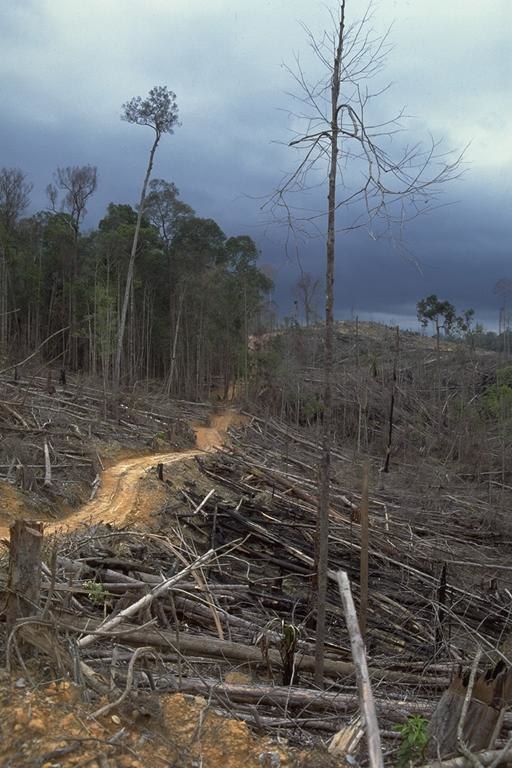Palm oil is a tropical oil surrounded by controversy.
I first wrote about palm oil two years ago
in a post that discussed issues with its production, including massive scale deforestation and social disruption. Palm oil is used in
around 50% of products found in the grocery store, and many soapmakers use it in their soaps.
One Earth Body Care soaps are entirely palm-oil-free. However, palm oil production is an important issue that reaches beyond soapmaking into many aspects of everyday life. I now want to revisit efforts to foster sustainable palm oil production and check on the current status of these efforts. Can soapmakers and consumers trust the label "sustainable palm oil" when sourcing ingredients or purchasing products? This is Part 1 in a series of posts that takes a look at this issue.

Deforestation and forest burning for oil palm plantation in buffer zone of Bukit Tigapuluh National Park, Sumatra, Indonesia. Wikimedia Commons.
Can sustainability be certified?
The longest-running certification scheme for "sustainable palm oil" is managed by the
Roundtable on Sustainable Palm Oil (RSPO).
The RSPO has been widely criticized for failing to live up to its promises of ensuring no deforestation or human rights abuses by companies that obtain RSPO certification. Partly in response to that criticism,
the RSPO is considering revising and strengthening its standards to better enforce sustainability. A decision on new standards that would promote "No Deforestation, No Peatland and No Exploitation" best practices will happen in November 2018. Another initiative,
The Palm Oil Innovation Group (POIG), is working to promote "responsible palm oil production practices by key players in the supply chain through developing…a credible and verifiable benchmark that builds upon the Roundtable on Sustainable Palm Oil (RSPO)." The
Rainforest Alliance has also developed a certification scheme to work against deforestation and injustice in palm oil production. The Rainforest Alliance collaborates with the RSPO,
Tropical Forest Alliance 2020, and the
Consumer Goods Forum in these efforts.
Solutions aren't simple.
I believe it's important to recognize efforts that groups like these are making to improve conditions on the ground and to educate consumers about the devastation contained in commodities they use every day. Part 2 in this series will look at different schemes for supply chain management in relation to "sustainable" palm oil. The quotation marks around "sustainable" are not meant to mock the concept. I'm using quotes because I do not want to give the impression that there is a clear and uncomplicated commodity called sustainable palm oil. I believe we need to look critically at ingredients and materials supply chains in the products we use. Let's resist the temptation to be put at ease by labels that may mask the complexity behind the commodity!


